Chris is an old friend of mine and a first time traveler. He took off to Indonesia eight months ago to teach English and he’s been learning what it means to be a foreigner and a minority in a strange land. Asia is a different place indeed, and today I’m sharing with you Chris’ experience as a white boy far from home.
Being a White Boy in Indonesia
“Hey Mister” was a phrase I got used to hearing while walking around the streets of Pangandaran in West Java, Indonesia. I was on my first holiday trip during my year long contract teaching English outside Jakarta. Little did I know what this nine day trip between Christmas Eve and New Year’s day would bring; the words of a well spoken local would change my own perception of myself and what it means to be a “bule,” or white person, in this diverse country.
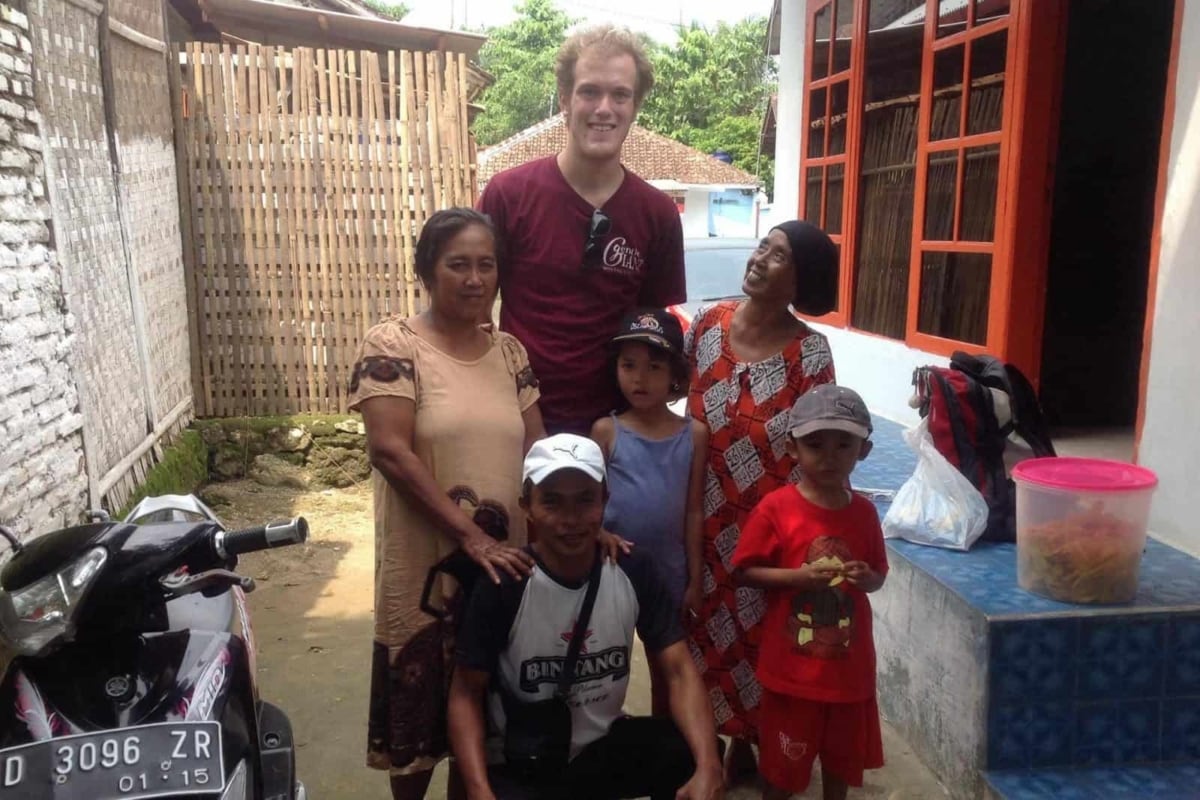
The Meaning of “Bule”
During my time so far in Indonesia, I have inquired about the meaning of the word “bule” to my co-workers, many of whom are local Indonesians, students, and even the employees at Starbucks.
No one has been able to give me a straight answer.
The half-explanations I listened to were mostly hearsay. One of my co-workers referred to a legend and tradition involving a white bull in some villages on the Sulawesi Island, northwest of Java. Another story referenced old Javanese words for the Dutch, who colonized Indonesia for over 300 years.
One thing everyone agreed on was that it is not meant to be offensive. Coming from the United States, however, I find it hard to believe that any prejudicial racialized term can exist without any negative connotations. In my own attempt to solve the mystery I turned to the all-powerful Google. The Google translation gave “albino” as the equivalent for “bule.”
Thinking I had the support of the internet in my corner, I brought this to the attention of my co-workers which sparked an intense debate.
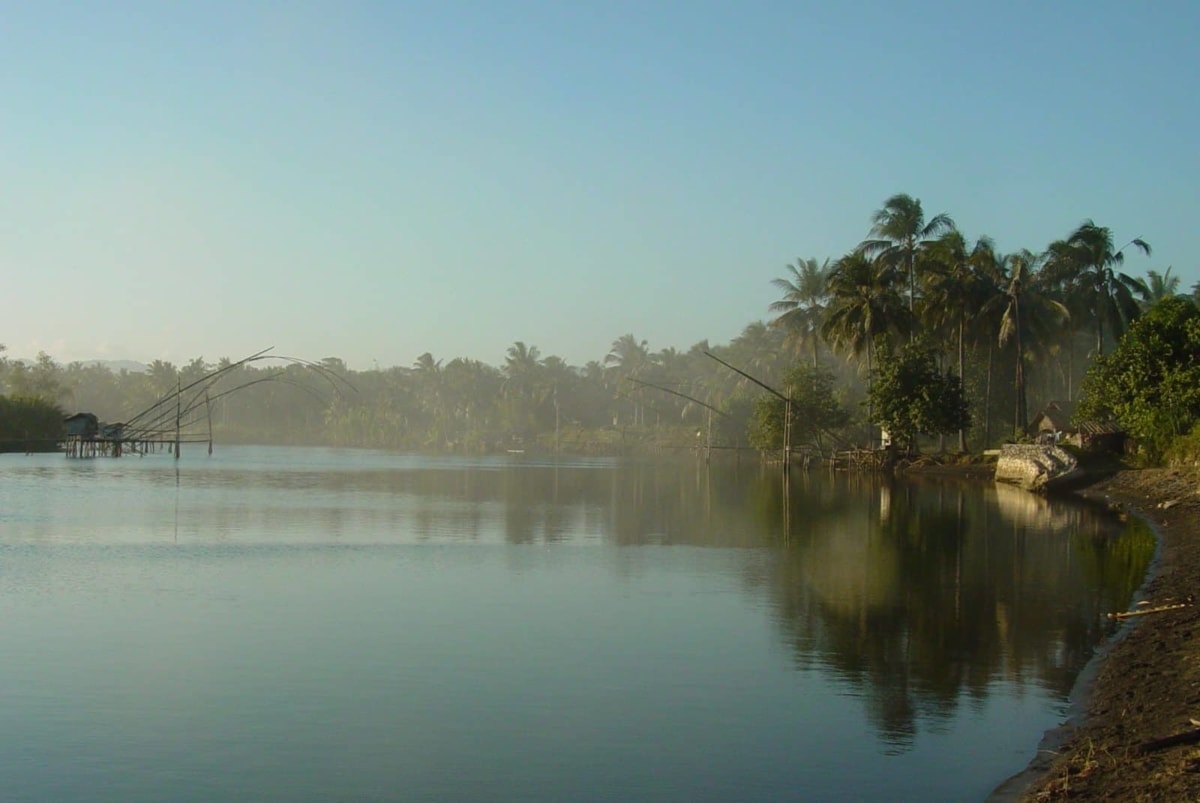
A “Bule” in Pangandaran
Rewind to the streets of Pangandaran, my co-teachers and I were looking for a restaurant where we could celebrate Christmas, when up walks an Indonesian man named Skas. He was a very cool and calm type of man, with a slight underbite, about 25 years of age with a taste for Lucky Strike cigarettes and cold beer. We got along well.
The next morning I ran into Skas at breakfast and he invited me along to ride scooters to the Green Canyon. There, they do river tours and take you to a beautiful cavern where you can see a little waterfall.
Along the way we stopped for lunch (after I was nearly killed by an oncoming bus) and Skas showed me how to eat like a real Indonesian. With my hands, I packed some rice into a little pyramid shape, picked it up and flicked it into my mouth with my thumb.
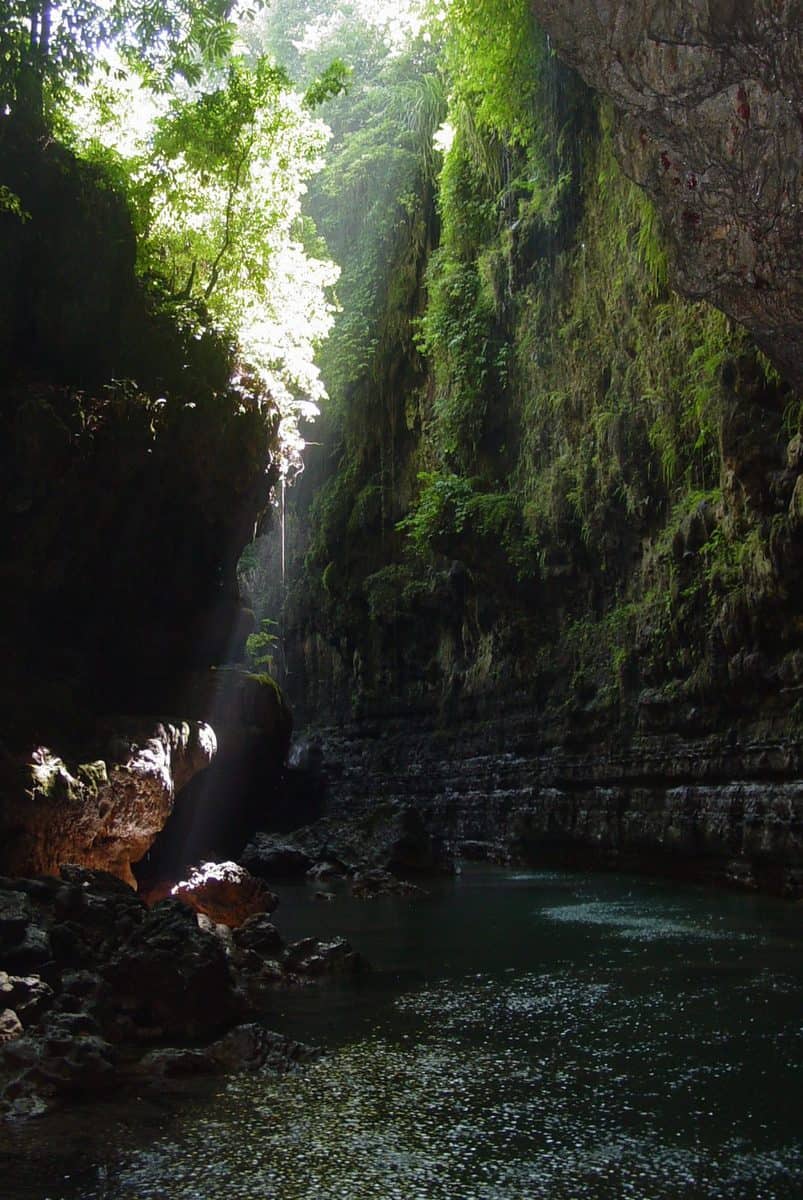
“Hello Mister”
We rode up the street to the little boat pick-up for our tour and, while waiting for Skas to pick up the tickets, an older gentleman approached me and said, “Hello, Mister! Photo?” I gave him a quick nod of agreement.
What I didn’t realize was that by “photo” he meant not only taking a photo with him, but also taking a photo with roughly 15 of his family members. We took a big group photo and then an individual photo with each of them.
At first this seemed like a strange anomaly. Something about me must have triggered the series of photos. Was it my clothes? Or maybe my stature (I’m 6’1’’ or 1.85m)? I couldn’t grasp why anyone would want to take a photo with a complete stranger.
Soon afterwards, we hopped onto a sketchy little boat that took us up the river. We got to a big rock about the size of two SUV’s parked next to each other, sitting in the middle of a big open cove. There must have been forty people standing on this rock. Forty was enough for it to be crowded.
And then the “Hello, Misters” started. I must have taken photos with half of that crowd, when Skas started laughing, suggesting that I should start charging.
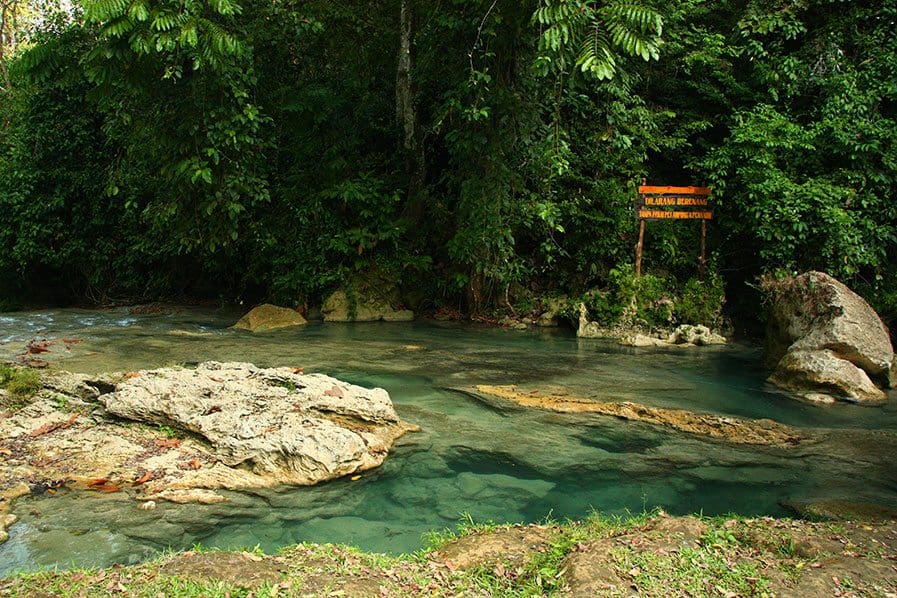
You Are the Monkey Here
We got out of there pretty quickly and took the scooters to a nearby beach. We went for a swim and noshed on some tofu from a pushcart vendor. Skas and I got to talking about the whole photo thing. It’s quite discomforting, being subjected to so many flashes and demands. It’s almost like being a celebrity followed by the paparazzi.
As I expressed my discomfort, Skas turned to me and said, “You are the monkey here. You’re a novelty.”
At that very second, my thoughts changed entirely about who and where I was. Up until this point in my life I was just a regular American boy. Another one in the crowd. Here, off the beaten path in southern Indonesia, I am an exotic creature from a foreign land. It seemed that most of the local people there had never seen a white person in real life before, especially one who is a relative giant.
A single photo immortalized me in countless photo albums and probably even more stories. I was a noteworthy anecdote in the vacation stories of so many.
Like a monkey in this zoo, I was a sight to see.
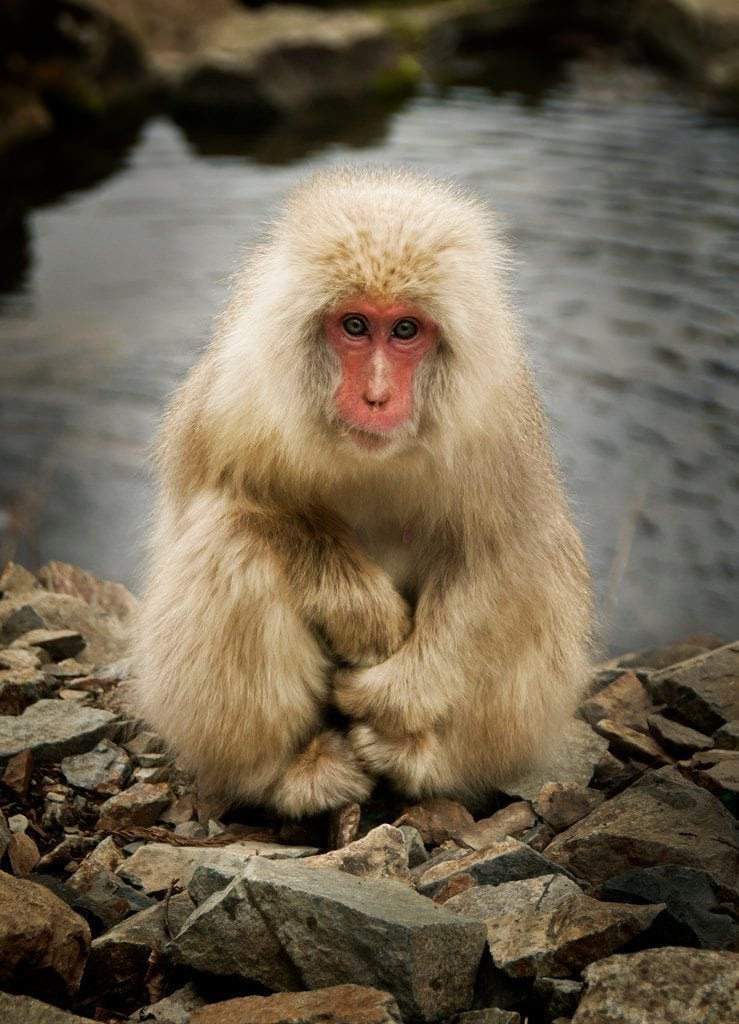
The Real Meaning of “Bule”
So perhaps the word “bule” doesn’t really need to be good or bad. It just is. Maybe, over hundreds of years since the first white people arrived, different terms were applied and accepted in use. The etymology of the word is not important, it just matters how it affects people today.
At the very least, it spikes a certain wonder or intrigue in those curious individuals.
During my stay in Pangandaran I had my photo taken a few more times, but no where near as many as that day at the Green Canyon. Skas left the next day, but I shared his words with my colleagues who had both been in Indonesia much longer than I had. Neither had heard an analysis so simple and poignant as that one.
After some deep reflection over the comment, we headed back to our favorite bar for some cold Bintang and a few games of pool.
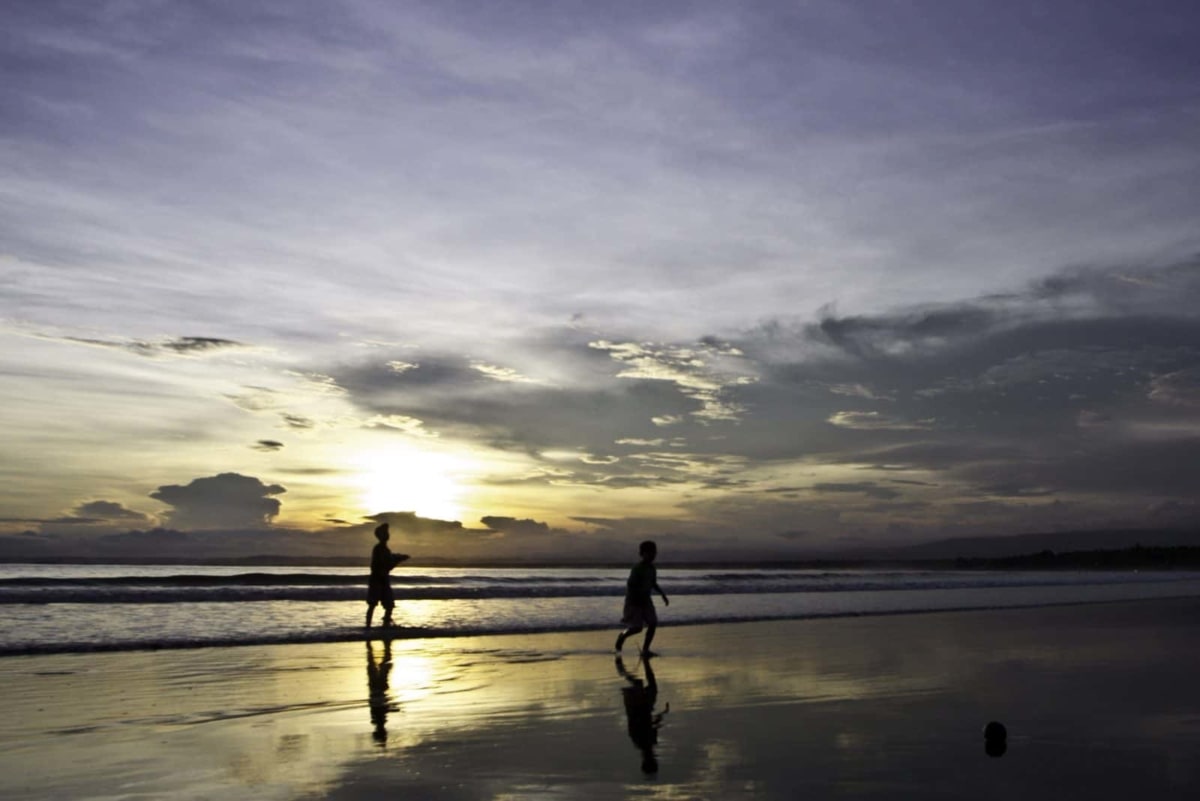
Chris left the U.S. in November 2013 for Jakarta, Indonesia. He’s a full time English teacher but takes holiday time to explore the great things Indonesia has to offer. He has been to Europe and Central America and is taking his time to see Southeast Asia.
READ NEXT: Wandering the Streets of China: An Introspection. Is This Culture Shock?
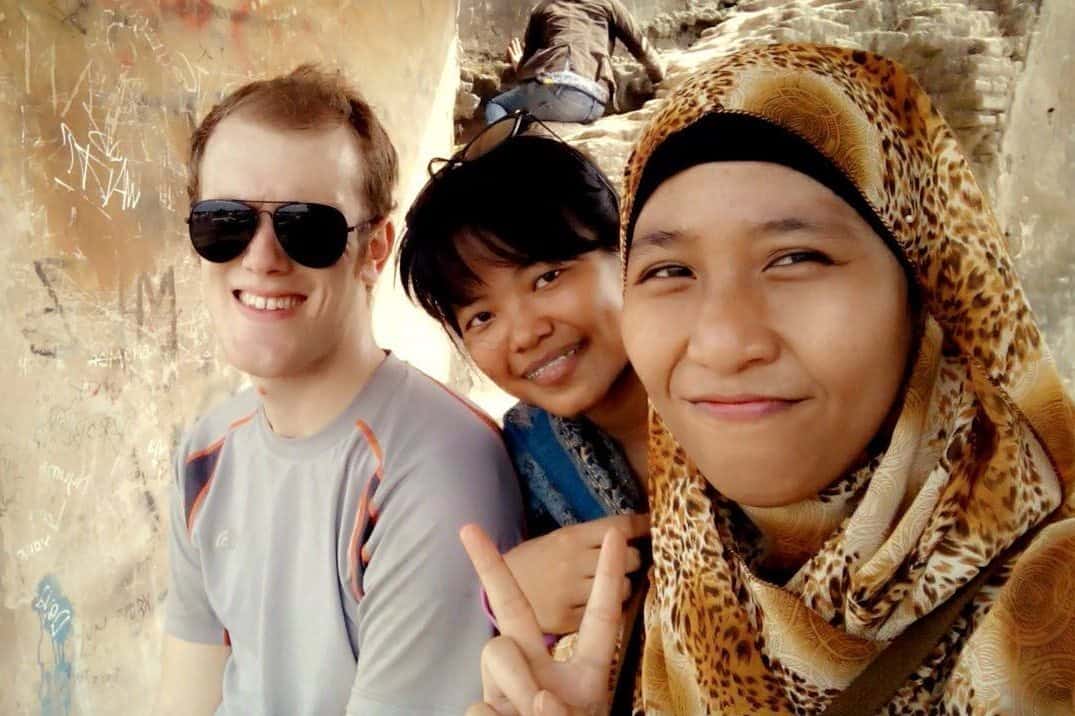

I had the same reaction in Sumatra and it was really uncomfortable, l recall saying that I felt like a circus animal. So I guess we felt about the same way. After a while you start developing a sense of humour about it but have to admit I felt like the butt of jokes in the beginning.
Good post,
Frank (bbqboy)
Wait wait wait…you [Chris] arrived in Indonesia in November and it took you until Christmas vacation to figure out how to eat like an Indonesian? Where were you eating in the meantime? Don’t tell me you spent that whole first month and whatever NOT eating street food!
Sorry, I kid. Spent a lot of time in Indonesia myself, more than any other country. Bule is a helluva word too. Not good, not bad, but it is a bit…rough…improper. That’s part of what makes it funny though rather than saying “orang asing.” Been learning the language and would still be there today but just left a couple weeks ago (got deported, long story). Anyway how long is your teaching gig, just a one year contract or have you already renewed? I’ll be back there soon, be cool to chat over a beer. Sudah lo bisa bicara bahasa, ya?
Hi, this is Chris.
Hi, This is Chris.
About the food, I never had to eat with my hands. All the street foods around have forks and spoons around so I never bothered to get my hands greasy. I do really like Padang, though. I will be here until the third week of November. I live about an hour south of Jakarta.
Hello Mr. Nerds, i find your blog.
Very enjoyable article. I’m thinking of going there myself someday soon. Thanks for the insights!
This sounds just like Thailand (where you get called farang). I had never experienced anything like it before, being a black haired and tanned Italian-Englishman meant I was never subjected to harassment in Europe, North America or Latin America and blended in quite well in all of those places. But coming to Asia was to change all that. I always used to think of myself as just me and never noticed paid attention to my “western-ness”. But after a few weeks in Thailand, hearing groups of kids yell “farang” then run away laughing, full grown adults blatently talk about “the farang” right in front of me thinking I didnt understand, random people yelling hello at me for no reason, being stared down everywhere I went and ignorant remarks about how all farangs “just want to take thai girls” I was in for a real shock. The bad stages of culture shock hit me like a freight train and lingered for months. I became withdrawn, lonely and just wanted to hide all the time. I only stayed with other expats and avoided places with large congregations of thai people. While walking alone I learned to wear dark sunglasses, focus on my path and become the master of the poker face to avoid noticing the stares and pointing. Eventually the culture shock did pass, and although there are still annoying aspects about being a farang in Thailand, I have been here for 3 years now!
😛 bule means you get so much pussy
Couldn’t have said it better myself